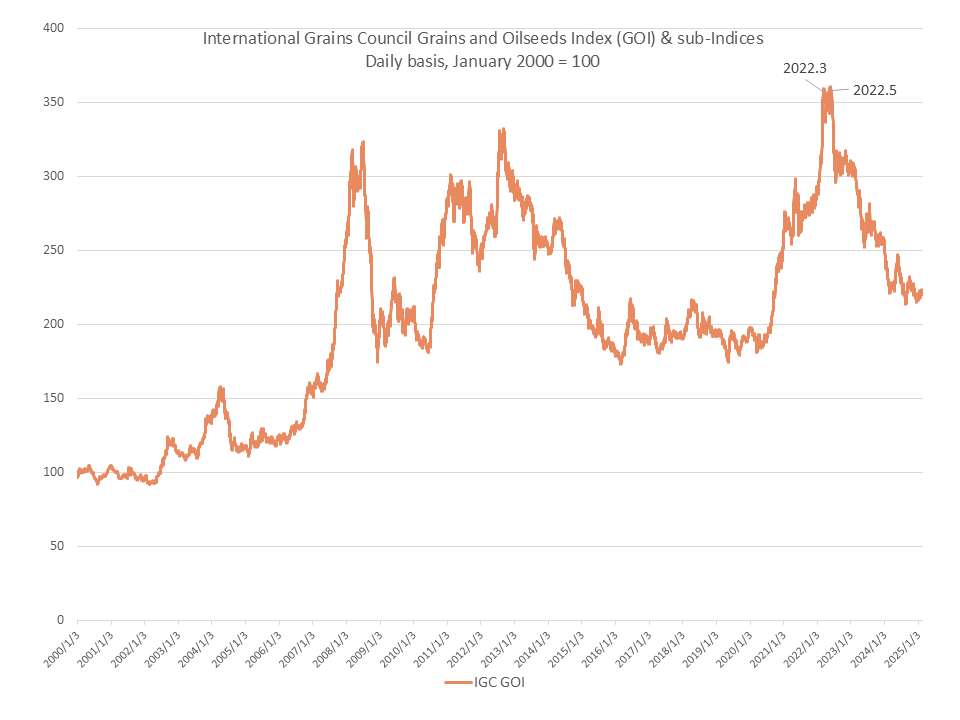Pick Up
1202. World Food Crises over the Past Three Years

1202. World Food Crises over the Past Three Years
Three years ago, on February 24, 2022, Russia's invasion of Ukraine triggered a geopolitical risk involving major food exporting countries, threatening world food security. An article on the European Council's website looks back on the impact.
The Russian invasion of Ukraine has dramatically reduced Ukraine's exports, a major grain exporter. This has put millions of people around the world at risk of major food security concerns.
Ukrainian grain production in 2022/2023 fell by 29%. Before the war, about 90% of Ukraine's agricultural exports were transported by sea, but after the start of the war, Russian forces blockaded Ukraine's Black Sea ports, effectively halting exports and causing exports to fall by more than 90% in March-May 2022. Export volumes have increased since June, but are still much lower than 2021 levels, and even in September and October, when exports peaked, they were 57% and 42% lower than 2021 levels respectively.
After the EU implemented alternative shipping routes and the UN and Turkey took steps to lift the port blockade (the "Black Sea Grain Initiative"), exports increased and food prices fell steadily. However, in July 2023, Russia withdrew from the Black Sea Grain Initiative. At the time, 40% of Ukraine's grain was transported through Black Sea ports and 60% by land. Thanks to good global harvest prospects, food prices are now relatively stable. However, the war and Russia's blockade of Black Sea ports have reduced Ukraine's ability to export grain and food products to world markets, so global food supplies remain unstable.
The lasting effects of the war cannot be ignored either. In 2021, Ukrainian farmers had sown spring crops on about 17 million hectares. This is an area larger than Austria and the Czech Republic combined. However, since the war began, farmers' sowing area has decreased by 22% in 2022. The area that was not sown (2.8 million hectares) is almost the size of Belgium.
Ukrainian exports, especially wheat, are crucial for some Asian and African countries. From 2016 to 2021, these countries imported 92% of Ukrainian wheat. 65% of wheat exported through the Black Sea Grain Initiative went to developing countries.
The impact of the war on Ukrainian grain exports was mitigated by pre-war sowing and large stocks accumulated in 2022, but there are concerns that future exports will be seriously affected due to loss or damage to production facilities and unplanted areas. Compared to 2021/2022, Ukrainian grain production is expected to decrease by 29% in 2022/2023 and to decrease further in subsequent years.
Contributor: IIYAMA Miyuki, Information Program
